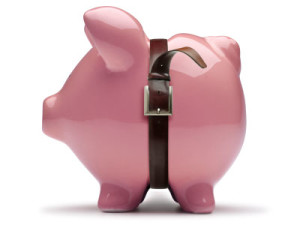Priorities Determine Your Spending
As you are well aware, prioritizing your life is one of the most important things you can do to keep on living from day to day. Unfortunately people sometimes get ahead of themselves with something they have in mind and forget the important things in life. Lots of times these things that get people excited are called “impulse buys.” Impulse buying is when you see something that interests you and you buy it either because you don’t want to leave a store empty-handed or you don’t want to miss out on something that you felt was important. There are various ways of cutting down these impulses and really setting what you need to spend in your day-to-day life.
Planning Monthly Spending
It doesn’t get more basic than taking about an hour one day and listing all of the things that you spend money on each week and each day that totals your monthly spending. Making a list of all things such as, groceries, utilities, rent / mortgage, car insurance, car payments, gas for your vehicle, vehicle maintenance spending, etc… is a really important step in deciding on how much you should be spending each month.
Breaking down a list of what you spend each day will help you set a goal and let you see where you can save each day and each month. Cutting down on simple things like switching from name brand to store-brand (most items actually come out of the same factory), really help cut down your overall spending. There are other things like how often do you leave on the air conditioning in your house? If you are out all day, set the air conditioner to a higher temperature or turn it off, so it’s not on all day cooling nothing (unless you have pets of course). The same goes for heating or any other appliances that pull electricity or use oil or natural gas.
Establish Online Banking
Online banking is one huge advantage that most banks offer free when you open up any type of savings or checking account with them now-a-days. It’s so easy to balance out your check-book or keep track of what you’ve spent over the past few days. It’s very important to see where your money is going each and every day. For instance if you keep buying food for lunch at different places and spend $10 a day on lunch you’re going to notice that ends up being about $300 a month that you don’t ever take into consideration. Buying food from a supermarket and making lunch yourself can cost as little as $10 a week if you prepare everything yourself. Most online banking programs let you see which stores you frequent the most. As I’ve stated before, a really helpful utility that compiles all your spending and displays weekly and daily customizable reports is Mint. Mint is a free online banking tool that can really help keep track of your spending if you have multiple bank accounts and credit accounts. Check them out and setup an account in your spare time, you’ll be glad you did.
Reducing Consumption
As humans, our tendency is to consume to live. We see many advertisements everywhere telling us what to buy or what to wear or what to eat, etc… There are many tendencies that you’ll pick up that just become second so second nature, you become unaware that you constantly keep doing them. Breaking these tendencies is crucial to cutting down on your consumption. Some people over-pay for simple services such as cable-tv. A lot of people get sucked into deals that seem so good that you’ll receive all these channels that you’ll almost never watch. Call your cable company and ask for the most basic package that you can get and you’ll be surprised that they usually keep all the channels that you regularly watch and watch your monthly bill shrink. Simple tips like these should open your eyes to a world of savings by reducing the amount that you consume.
Bills Over Everything
To live, there has to be someone always taking your hard earned money and you don’t want to upset them by not paying them. Your top priorities should always be paying your bills and paying them on time if you want to maintain good credit (we’ll go into credit and credit building over the next few posts). It is hard spending a lot of money each month on bills that recur. The next important thing should always be food, for obvious reasons. After that, transportation is also key, unless you work strictly from home and you happen to be within walking distance from most stores that you’ll need. Unplanned expenses is one thing that most people tend to miss.
Life isn’t easy and doesn’t always give you breaks. When you least expect it, something always seems to go wrong. It’s crucial to set some money away each month for an “emergency” fund. You should always have enough money for at least two to three months if you were to lose your job. You should also always have enough money put away if something were to happen to your vehicle or you needed emergency house repairs, because things can’t always wait until payday. Living pay-check to pay-check is no way of living, it’s more of surviving and that’s not fun for anyone (believe me, I’ve been there all too often). Really prioritizing and cutting down will help you live a more enjoyable life.
As always, I will recommend to my readers something that has helped many and something that I am SURE will help you out. The Budget Kit: The Common Cents Money Management Workbook, is a book that helps you become dollar-smart instead of penny-smart. Check the book out. What the author writes in this book can really help you manage your money. This is money well spent!
